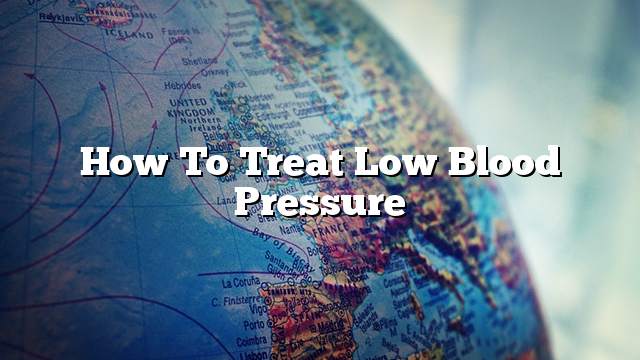blood pressure
Is the force arising as a result of blood pushing to the walls of blood vessels carrying it especially the arteries.
Blood pressure is lower than the height of the blood pressure, which is lower arterial pressure than the rate of 120/80 mmHg, a chronic condition, causing fainting and dizziness, and may reach the disorder of perfusion for the brain, and lack of oxygen and food, resulting in The occurrence of what is known as shock.
Symptoms of low blood pressure
These symptoms are for non-athletes and high fitness owners
- Dizziness and dizziness caused by lack of oxygen from the brain.
- Increased heart rate, to compensate for the lack of oxygen and food for different body members.
- Stress, fatigue and fatigue without any effort.
- Signs of dehydration appear in the face, accompanied by a feeling of thirst and depression.
- Breathing fast and tight.
Causes of low blood pressure
- Decreased amount of fluid from the blood vessels, due to exposure to external bleeding due to injury or pregnancy or internal bleeding, led to decrease with the survival of blood, or because of allergic reactions or infection of microbial infections.
- Exposure to dehydration due to lack of fluid intake during muscle exertion, exposure to high temperatures leading to fluid outflow through sweating, or loss of various processes such as vomiting or diarrhea.
- Diuretics such as anti-hypertensive prostate gland, kidney stones and gallbladder (gallbladder), sexually transmitted substances, and medications used to reduce stress, such as beta blockers, etc.
- Pregnancy due to the expansion of blood circulation in pregnant women.
- Heart disease, heart failure, arrhythmias, arteriosclerosis, blood clotting, or heart valve malformation.
Treatment of low blood pressure
It should be noted that the reduction in pressure is meant to be at least 20 mm mercury. This is considered to be within the acceptable normal range, as well as to the feeling of low blood pressure, etc. The importance of pressure is not given, it can be treated and adapted. Helps to raise blood pressure, and maintain it within the level include:
- Take fluids, especially water in hot climates, and maintain a daily drinking rate of water.
- Take some stimulants like coffee and tea, especially after meals.
- Increase the amount of salt to the food, eat nuts and citrus to contain the salt, which helps to retain fluid inside the body, leading to high blood pressure.
- In cases of severe hypotension, medical intervention is required by direct compensation with saline solution.
